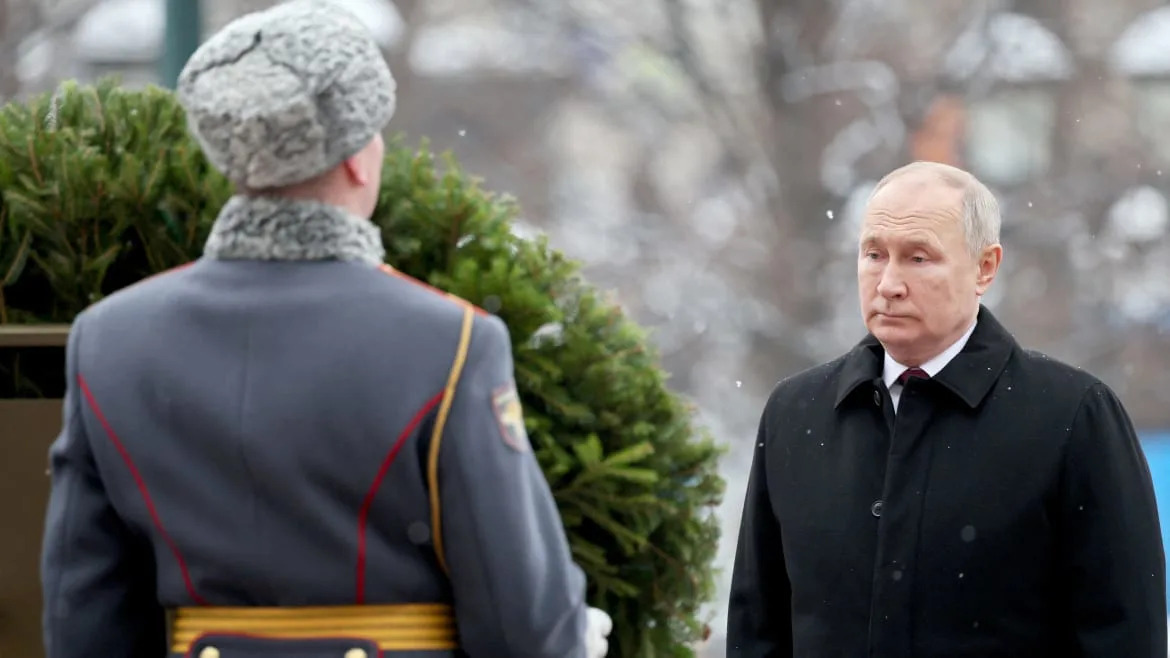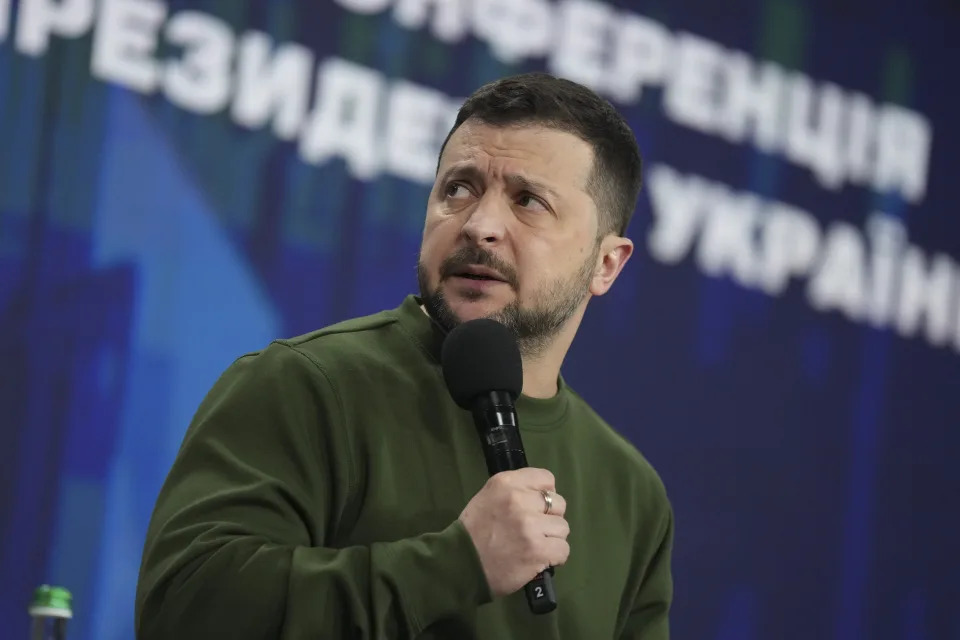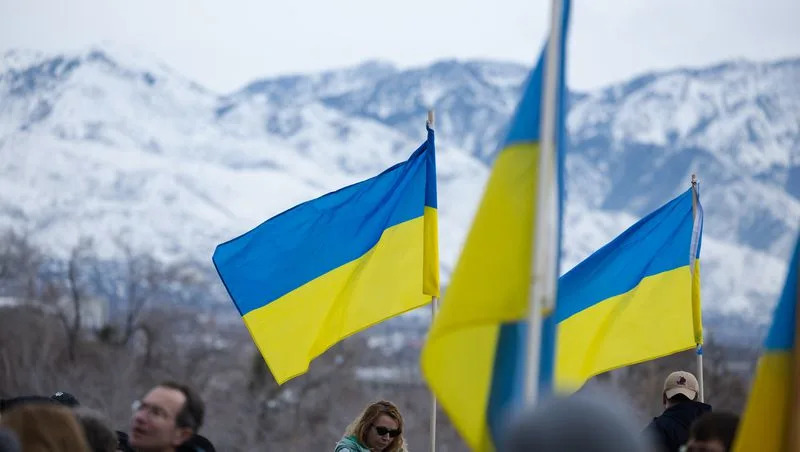CNN
15 promises Donald Trump has made so far in his campaign for a second term
Piper Hudspeth Blackburn and Abby Turner – March 6, 2024

Former President Donald Trump, now the presumptive Republican nominee, has made a number of promises on the campaign trail, including rolling back car pollution rules, building 10 new cities and appointing a special prosecutor to investigate President Joe Biden and his family.
While some of Trump’s plans are lacking in detail, here are some of the policies he says he would enact if elected for a second term.
Immigration
Trump has made immigration and the border a central campaign issue, successfully pressuring Republicans to reject a major bipartisan border deal last month and making a trip to the southern border on February 29, where he touted his previous hard-line immigration policies.
In a Des Moines Register op-ed published roughly a week before winning the Iowa caucuses in January, Trump vowed to use the “Alien Enemies Act to remove known or suspected gang members, drug dealers, or cartel members from the United States.”
“We will shift massive portions of federal law enforcement to immigration enforcement — including parts of the DEA, ATF, FBI, and DHS,” he wrote.
In a video posted on Truth Social in late February before his border visit, Trump also promised to “carry out the largest domestic deportation operation in American history.”
After the Israel-Hamas war began last October, Trump also promised to terminate the visas of “Hamas’ sympathizers.”
“We’ll get them off our college campuses, out of our cities and get them the hell out of our country, if that’s OK with you,” he added.
Drug cartels
The former president has also made waging “war” on drug cartels a priority for his second term. If elected, Trump said in his November 2022 campaign announcement that he would ask Congress to ensure that drug smugglers and human traffickers can receive the death penalty for their “heinous acts.”
Trump also vowed to “take down” drug cartels by imposing naval embargos on cartels, cutting off cartels’ access to global financial systems and using special forces within the Department of Defense to damage the cartels’ leadership.
Education
Trump announced plans in a September 2023 campaign video to close the Department of Education and send “all education and education work and needs back to the states.”
“We want them to run the education of our children, because they’ll do a much better job of it,” he added.
The former president has also promised to “put parents back in charge and give them the final say” in education. In a January 2023 campaign video, the former president said he would give funding preferences and “favorable treatment” to schools that allow parents to elect principals, abolish teacher tenure for K-12 teachers, use merit pay to incentivize quality teaching and cut the number of school administrators, such as those overseeing diversity, equity and inclusion initiatives.
Trump also said in that campaign video that he would cut funding for schools that teach critical race theory and gender ideology. In a later speech, Trump said he would bring back the 1776 Commission, which was launched in his previous administration to “teach our values and promote our history and our traditions to our children.”
The former president said he would charge the Department of Justice and the Department of Education with investigating civil rights violations of race-based discrimination in schools while also removing “Marxists” from the Department of Education. A second Trump administration would pursue violations in schools of both the Constitution’s Establishment and Free Exercise clauses, which prohibit the government establishment of religion and protect a citizen’s right to practice their own religion, he said.
Health care
Last November, Trump promised to replace the Affordable Care Act, known colloquially as Obamacare, in a series of posts on Truth Social. A Trump-backed effort to repeal and replace Obamacare failed in 2017 after three Republicans senators joined with Democrats to vote against the bill.
“Getting much better Healthcare than Obamacare for the American people will be a priority of the Trump Administration,” he said.
“It is not a matter of cost, it is a matter of HEALTH. America will have one of the best Healthcare Plans anywhere in the world. Right now it has one of the WORST!,” he continued. He also doubled down on his vow during a speech in early January.
Trump also vowed in a June 2023 campaign video to reinstate his previous executive order so that the US government would pay the same price for pharmaceuticals as other developed countries. Some of the former president’s pharmaceutical policies were overturned by Biden.
Gender care
“I will revoke every Biden policy promoting the chemical castration and sexual mutilation of our youth and ask Congress to send me a bill prohibiting child sexual mutilation in all 50 states,” Trump said at the 2023 Conservative Political Action Conference last March.
Trump added in a campaign video that he would issue an executive order instructing federal agencies to cut programs that promote gender transitions, as well as asking Congress to stop the use of federal dollars to promote and pay for gender-affirming procedures. The former president added that his administration would not allow hospitals and health care providers to meet the federal health and safety standards for Medicaid and Medicare if they provide chemical or physical gender-affirming care to youth.
Justice system
Trump has promised to use the Department of Justice to attack critics and former allies. In several videos and speeches, the former president also laid out plans to gut the current justice system by firing “radical Marxist prosecutors that are destroying America.”
“I will appoint a real special prosecutor to go after the most corrupt president in the history of the United States of America, Joe Biden, and the entire Biden crime family,” Trump said in June 2023 remarks. “I will totally obliterate the Deep State.”
Trump said in a campaign video last year that he would reinstate a 2020 executive order to remove “rogue” bureaucrats and propose a constitutional amendment for term limits on members of Congress.
To address what he labeled the “disturbing” relationship between technology platforms and the government, the former president said in a January 2023 video that he would enact a seven-year cooling off period before employees at agencies such as the FBI or CIA can work for platforms that oversee mass user data.
Trump added in multiple campaign releases that he would task the Justice Department with investigating online censorship, ban federal agencies from “colluding” to censor citizens and suspend federal money to universities participating in “censorship-supporting activities.”
In a September 2023 speech at the Family Research Council’s Pray Vote Stand Summit in Washington, DC, Trump also touted plans to continue appointing conservative judges.
“I will once again appoint rock-solid conservative judges to do what they have to do in the mold of Justices Antonin Scalia; Samuel Alito, a great gentleman; and another great gentleman, Clarence Thomas,” he said.
Trump has also pledged to “appoint U.S. Attorneys who will be the polar opposite of the Soros District Attorneys and others that are being appointed throughout the United States.”
In a September 2023 speech in Washington, DC, Trump also announced that he would appoint a task force to review the cases of people he claimed had been “unjustly persecuted by the Biden administration.” Trump noted that he wanted to “study the situation very quickly, and sign their pardons or commutations on day one.”
It’s a move that could lead to potential pardons of many rioters from the January 6, 2021, insurrection – which he suggested he would do at a CNN town hall in May 2023.
Crime
Trump said in two February 2023 campaign videos that if “Marxist” prosecutors refuse to charge crimes and surrender “our cities to violent criminals,” he “will not hesitate to send in federal law enforcement to restore peace and public safety.”
Trump added that he would instruct the Department of Justice to open civil rights investigations into “radical left” prosecutors’ offices that engaged in racial enforcement of the law, encourage Congress to use their legal authority over Washington, DC, to restore “law and order” and overhaul federal standards of disciplining minors to address rising crimes like carjackings.
Addressing policies made in what Trump calls the “Democrats’ war on police,” the former president vowed in a campaign video that he would pass a “record investment” to hire and retrain police, strengthen protections like qualified immunity, increase penalties for assaulting law enforcement officers and deploy the National Guard when local law enforcement “refuses to act.”
The former president added that he would require law enforcement agencies that receive money from his funding investment or the Department of Justice to use “proven common sense” measures such as stop-and-frisk.
Foreign policy
Trump has continued his attacks against member countries of NATO, a European and North American defense alliance. At a South Carolina rally last month, Trump said he would not abide by the alliance’s collective-defense clause and would encourage Russia to do “whatever the hell they want” if a member country didn’t meet spending guidelines.
“NATO was busted until I came along,” Trump said. “I said, ‘Everybody’s gonna pay.’ They said, ‘Well, if we don’t pay, are you still going to protect us?’ I said, ‘Absolutely not.’ They couldn’t believe the answer.”
The former president has also previously pledged to end the war in Ukraine, though he’s offered no details on how he would do so. “Shortly after I win the presidency, I will have the horrible war between Russia and Ukraine settled,” Trump said at a New Hampshire campaign event last year, adding in another speech that it would take him “no longer than one day” to settle the war if elected.
Trump further addressed his strategy of stopping the “never-ending wars” by vowing to remove “warmongers,” “frauds” and “failures in the senior ranks of our government,” and replace them with national security officials who would defend America’s interests. The former president added in a campaign video that he would stop lobbyists and government contractors from pushing senior military officials toward war.
In addition, Trump has said he would restore his “wonderful” travel ban on individuals from several majority-Muslim countries to “keep radical Islamic terrorists out of our country” after Biden overturned the ban in 2021.
New cities and flying cars
Trump said in multiple campaign videos that he would spearhead an effort to build so-called “Freedom Cities” to “reopen the frontier, reignite American imagination, and give hundreds of thousands of young people and other people, all hardworking families, a new shot at home ownership and in fact, the American Dream.”
In his plan, the federal government would charter 10 new cities on federal land, awarding them to areas with the best development proposals. The former president said in a campaign video that the Freedom Cities would bring the return of US manufacturing, economic opportunity, new industries and affordable living.
In the March 2023 video, Trump added that the US under a second Trump administration would lead in efforts to “develop vertical-takeoff-and-landing vehicles for families and individuals,” not letting China lead “this revolution in air mobility.” The former president said these airborne vehicles would change commerce and bring wealth into rural communities.
Electric vehicles
Trump has promised to roll back new car pollution rules at the Environmental Protection Agency that could require electric vehicles to account for up to two-thirds of new cars sold in the US by 2032. Biden’s electrical vehicle-related policies, Trump claimed at a Michigan rally last September, “spell the death of the US auto industry.”
“On day one, I will terminate Joe Biden’s electrical vehicle mandate, and I will cancel every job-killing regulation that is crushing American autoworkers,” Trump added.
Energy
Trump has promised to reduce energy prices by increasing domestic production. In several campaign appearances, he has laid out plans to end delays in federal drilling permits and leases.
“We’re going to ‘drill, baby, drill’ right away,” Trump told a crowd of supporters in Des Moines, Iowa, during a victory speech after winning the state’s Republican caucuses in January.
At a South Carolina rally in February, he pledged to remove limits on American natural gas exports.
Trade
At the same rally in South Carolina,Trump pledged to impose “stiff penalties on China and other trade abusers.”
“It’s called you screw us, and we screw you,” Trump said.
Under his proposed “Trump Reciprocal Trade Act,” the former president said if other countries impose tariffs on the US, the country would impose “a reciprocal, identical” tariff right back.
It was the same pledge Trump made in a campaign video in 2023: to impose the same tariffs that other countries may impose on the US on those countries. The goal, the former president said then, is to get other countries to drop their tariffs.
As part of a larger strategy to bring jobs back into the US, Trump also said he would implement his so-called “America First” trade agenda if elected. By setting universal baseline tariffs on a majority of foreign goods, the former president said Americans would see taxes decrease as tariffs increase. His proposal also includes a four-year plan to phase out all Chinese imports of essential goods, as well as stopping China from buying up America and stopping the investment of US companies in China.
Trump also said in February that he would consider imposing a tariff upward of 60% on all Chinese imports if he’s reelected.
The former president has particularly focused on China, vowing in a January 2023 campaign video to restrict Chinese ownership of US infrastructure such as energy, technology, telecommunications and natural resources. Trump also said he would force the Chinese to sell current holdings that may put national security at risk. “Economic security is national security,” he said.
Economy
Trump has promised to extend the cuts from his 2017 Tax Cuts and Jobs Act, notably the TCJA’s individual income tax breaks. The former president has also talked about reducing the corporate tax rate from the current 21% to 15%.
“I will make the Trump tax cuts the largest tax cut in history,” the former president said last month at the Black Conservative Federation’s Honors Gala in South Carolina. “We’ll make it permanent and give you a new economic boom.”
Trump has also pledged to repeal Biden’s tax hikes, “immediately tackle” inflation and end what he called Biden’s “war” on American energy production.
Second Amendment
“I will take Biden’s executive order directing the federal government to target the firearms industry, and I will rip it up and throw it out on day one,” Trump said at the 2023 National Rifle Association Institute for Legislative Action leadership forum last April.
The former president also promised in the speech that the government would not infringe on citizens’ Second Amendment rights and that he would push Congress to pass a concealed carry reciprocity.
Equity
“I will create a special team to rapidly review every action taken by federal agencies under Biden’s ‘equity’ agenda that will need to be reversed. We will reverse almost all of them,” Trump said in a campaign video.
Trump added in multiple campaign videos that he would revoke Biden’s equity executive order that required federal agencies to deliver equitable outcomes in policy and conduct equity training. If elected, Trump said he would also fire staffers hired to implement Biden’s policy, and then reinstate his 2020 executive order banning racial and sexual stereotyping in the federal government.
CNN’s Tami Luhby, Kate Sullivan and Kristin Holmes contributed to this report.








